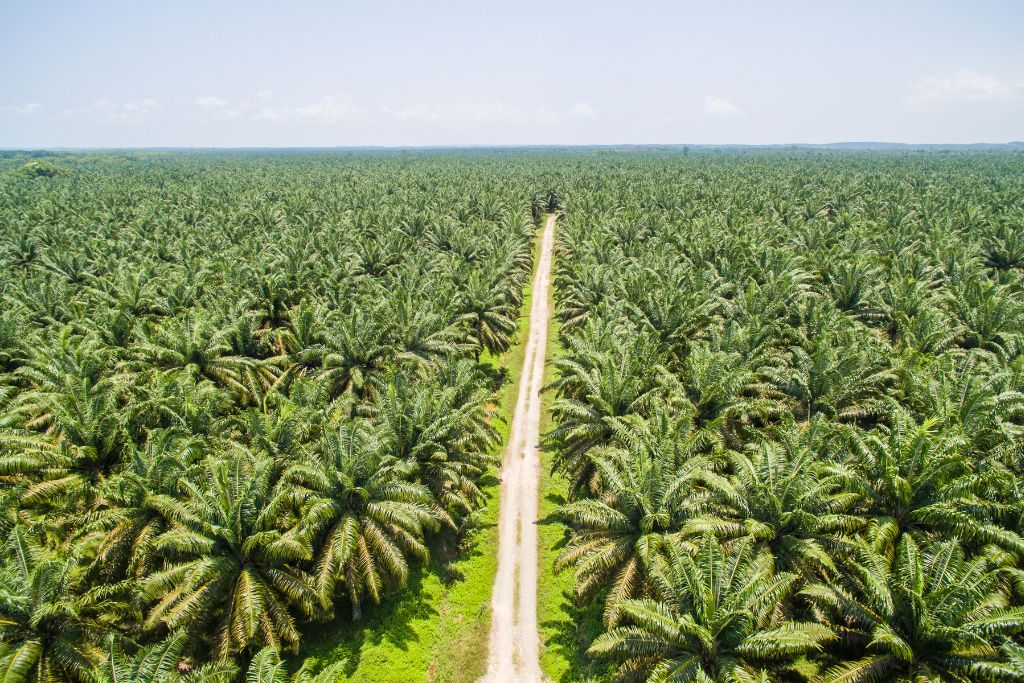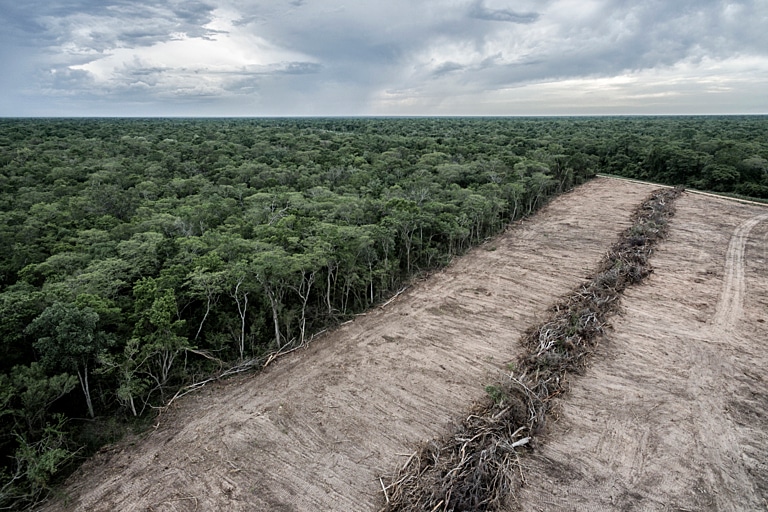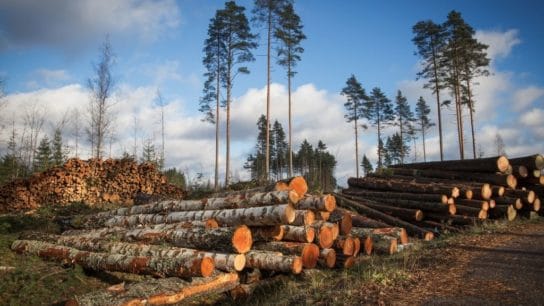With deforestation still presenting global issues for climate change and biodiversity loss, the EU Deforestation Regulation aims to strengthen forest protection. With its full enforcement set to begin on December 30, 2024, the regulation includes strict and comprehensive requirements for a range of high-impact commodities. However, incomplete product coverage and increased compliance demands could have unintended impacts on forest conservation.
—
Regulation 2023/1115 of the European Parliament and Council of the European Union (EU) came into force on June 30, 2023, with a transitionary period of 18 months. This means that companies have until December 30, 2024 to ensure their products and supply chains comply with the requirements of the EU Deforestation Regulation (EUDR). All products set for placement in the EU market or being exported from the EU must comply with all EUDR requirements.
The EUDR will only apply to a limited number of commodities and their derivatives that are labeled as “high risk” for deforestation. These include cattle, cocoa, coffee, palm oil, soya, and wood. The main requirement of the EUDR is that commodities subject to its implementation are “deforestation-free.” Under the definition of the EUDR, deforestation specifically refers to the conversion of forest to agricultural land. Defined by item 13 in Article 6 of the regulation deforestation-free means:
“(a) that the relevant products contain, have been fed with or have been made using, relevant commodities that were produced on land that has not been subject to deforestation after 31 December, 2020; and
(b) in the case of relevant products that contain or have been made using wood, that the wood has been harvested from the forest without inducing forest degradation after 31 December, 2020.”
Further requirements of the EUDR stipulate that production of covered commodities must also comply with local law. Production must meet local requirements of land use rights, environmental protection, forest-specific policy, labor laws, and the Principle of Free, Prior, and Informed Consent as laid out in the United Nations Declaration on the Rights of Indigenous Peoples. A statement of due diligence must also be provided, describing information and results of supply chain assessments carried out for a product. These requirements will apply to all products containing, or produced with, covered commodities.
The responsibility to comply with the EUDR regulations falls onto the company that is placing a product in the EU market or is responsible for exporting a product from the EU, respectively.
You might also like: 13 Major Companies Responsible for Deforestation
Strong Goals for Forest Conservation
The six commodities covered by the EUDR accounted for over 50% of total deforestation between 2001-2015, according to the World Resources Institute’s (WRI) 2024 Global Forest Review. Of the six commodities, cattle accounted for a significantly larger portion of deforestation than the others (~36% of total deforestation). These impacts are regionally variable, with deforestation linked to cattle and soya occurring almost entirely in South America and particularly in Brazil. Meanwhile, palm oil-linked deforestation was heavily focused in Southeast Asia’s Indonesia and Malaysia, which produce over 80% of the world’s palm oil.
Limiting regulations to these six high-impact commodities was intended to allow regulators to concentrate efforts and resources where stricter protections are needed, while having the largest impact on global deforestation as possible.

A Deforestation report published in 2021 estimated that 30% of global deforestation occurred legally between 2013-2019. In countries with weaker environmental protection laws, larger amounts of deforestation may be considered “legal” under law but still have significant impacts on forest coverage. To combat this trend, the EUDR applies to both legal and illegal deforestation. This is a strengthening of market requirements from the EU’s Timber Regulation, which implemented similar regulations but only restricted products tied to illegal deforestation.
You might also like: How Does Deforestation Affect the Environment?
Limits and Drawbacks
- “Leaky” Land Usage in Oil Crops
The EUDR only regulates one oil crop, palm oil and its numerous derivatives. Palm oil supplies 40% of the world’s vegetable oil and was also responsible for 25-30% of global deforestation between 2000-2016. While palm oil is the third-largest contributor to deforestation globally behind cattle and soya, only regulating deforestation from palm oil and not other oil crops may unintentionally lead to higher deforestation rates.
Palm oil is preferred over other oil crops like sunflower, rapeseed (canola), and coconut because it produces yields 8-12 times higher than other vegetable oils. As the EUDR has extensive transparency and sustainability requirements, companies may be more willing to switch production towards an unregulated oil crop that has less requirements associated with enduring and documenting the sustainability of a product, leading to a “leak” in commodity-driven deforestation.
This switch could have negative impacts on conservation and on regional economies. If companies switch towards other oil crops, it could potentially lead to an increase in deforestation as a significantly greater amount of land would be needed to match the same yields achieved with palm oil.

Different oil crops have different growing requirements. For example, rapeseed is more adapted to Mediterranean and temperate regions compared to palm oil, which is limited to the tropics. A potential switch to other oil crops as a result of incomplete commodity coverage may result in regional economies like Indo-Malaysia being heavily weakened from decreased usage from EUDR regulated palm oil.
This potential trend is less likely to occur for the other five covered commodities as they are unique in their products; cattle (beef and dairy), soya (vegetarian meat alternatives), cocoa (chocolate), as well as coffee and wood.
- Impacts on Smallholders
Agricultural smallholders (those owning less than 10 hectares) only own 25% of agricultural land and produce roughly 30% of crops globally. In developing countries, smallholders are often indigenous and local peoples. Many indigenous communities struggle with gaining legal land ownership rights due to lack of resources. This and other challenges in proving land ownership may create issues for smallholders in complying with EUDR regulations.
While the companies in charge of importing and exporting products through the EU market are ultimately responsible for ensuring sustainable production, the documentation process is often spread to primary and secondary producers by larger corporations. This means that, in order to meet the documentation standards and legal production requirements of the EUDR, smallholders will need significant support and more capacity.
Some policy analysts are concerned that the increased burden on smallholders may lead to an increased commercialization of commodity agriculture. This would have a significant impact on available opportunities of sustainable and viable income for indigenous communities without increased support.
You might also like: The Silent Cry of the Forest: How Deforestation Impacts Indigenous Communities
Outlook
The EU Deforestation Regulation is set to enter full enforcement at the end of 2024. Covering six of the agricultural commodities with the highest risk of deforestation, the EUDR has the potential to create significant improvements in forest conservation. The requirement of products and their derivatives to be deforestation-free and that production must comply with relevant local legislation creates a strong framework for forest protection in the EU, one of the globe’s biggest economic markets.
The new comprehensive regulation will likely require increased support for smallholders and indigenous communities to be able to comply and maintain important sources of income. While focused on the most impactful commodities, incomplete application to all agricultural goods may lead to a ‘leak’ in deforestation to other oil crops besides palm oil not covered by the EUDR.
Through proper and thorough implementation, the EUDR has the potential to set the standard for sustainable commodity production and to raise the standards of producing country legislation along with it.
Featured image: Marcelo Perez del Carpio/Climate Visuals Countdown.
This story is funded by readers like you
Our non-profit newsroom provides climate coverage free of charge and advertising. Your one-off or monthly donations play a crucial role in supporting our operations, expanding our reach, and maintaining our editorial independence.
About EO | Mission Statement | Impact & Reach | Write for us
How can I contribute to a more sustainable planet?
- 🗳️ Vote for Climate Action: Exercise your democratic rights by supporting candidates and policies that prioritize climate change mitigation and environmental protection. Stay informed with Earth.Org’s election coverage.
- 👣 Reduce Your Carbon Footprint: Make conscious choices to reduce your carbon footprint. Opt for renewable energy sources, conserve energy at home, use public transportation or carpool, and embrace sustainable practices like recycling and composting.
- 💰 Support Environmental Organizations: Join forces with organizations like Earth.Org and its NGO partners, dedicated to educating the public on environmental issues and solutions, supporting conservation efforts, holding those responsible accountable, and advocating for effective environmental solutions. Your support can amplify their efforts and drive positive change.
- 🌱 Embrace Sustainable Habits: Make sustainable choices in your everyday life. Reduce single-use plastics, choose eco-friendly products, prioritize a plant-based diet and reduce meat consumption, and opt for sustainable fashion and transportation. Small changes can have a big impact.
- 💬 Be Vocal, Engage and Educate Others: Spread awareness about the climate crisis and the importance of environmental stewardship. Engage in conversations, share information, and inspire others to take action. Together, we can create a global movement for a sustainable future.
- 🪧 Stand with Climate Activists: Show your support for activists on the frontlines of climate action. Attend peaceful protests, rallies, and marches, or join online campaigns to raise awareness and demand policy changes. By amplifying their voices, you contribute to building a stronger movement for climate justice and a sustainable future.
For more actionable steps, visit our ‘What Can I do?‘ page.














